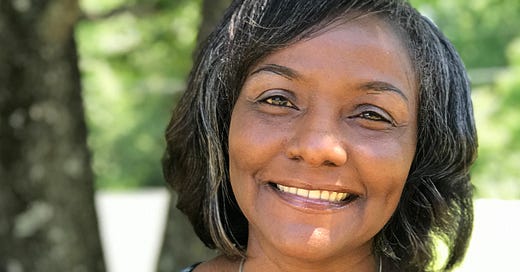Mississippi Native: Linda Williams Jackson
"My writing became more authentic and descriptive when I came home. Living in Mississippi has given me more of a sense of purpose for writing about Mississippi."
What does it mean to call Mississippi home? Why do people choose to leave or live in this weird, wonderful, and sometimes infuriating place? Today we hear from former database administrator and adjunct professor turned award-winning author Linda Williams Jackson.
Where are you from?
I was born and raised in Rosedale, a little town on the Mississippi River. Rosedale is the city where blues legend Robert Johnson, at the crossroads of Highways 1 and 8, allegedly sold his soul to the devil. The city of Clarksdale also makes this claim, believing that Johnson sold his soul where Highways 49 and 61 intersect. Either way, I don’t doubt that the devil has made many visits to the Mississippi Delta—then and now—to make deals with people in exchange for their souls. (Just kidding.)
Why did you leave Mississippi? Where did you go?
First, I left Mississippi and moved to Alabama as a college student because I fell in love with a young man from Alabama, married him, then moved to Alabama and transferred from Mississippi State University to the University of Alabama. After my husband and I graduated from the U of A, we moved to Kansas City, Missouri to work for Hallmark Cards in the Information Technology Department. We couldn’t wait to leave the “racist South” only to be encountered with racism the first day on the job at Hallmark Cards. Someone had anonymously placed racist notes on the desks of Black employees in the I.T. department in response to Hallmark’s promoting Black computer programmers to managers. Maybe my husband and I didn’t move far enough away from the South. Or maybe we were just too naïve to realize that racism could cross state lines the same way we could.
I prefer the warmth of the Southern sun even if I don’t prefer the ignorance sometimes associated with the Southern pride.
Why did you return to Mississippi?
I returned to Mississippi because I was homesick. I missed my family—my mom and my sisters, my aunt and uncle, my cousins… I missed the mild winters. It snowed every week in Kansas City during winter, and I hated it. I prefer the warmth of the Southern sun even if I don’t prefer the ignorance sometimes associated with the Southern pride.
Keep reading with a 7-day free trial
Subscribe to Rooted Magazine to keep reading this post and get 7 days of free access to the full post archives.




